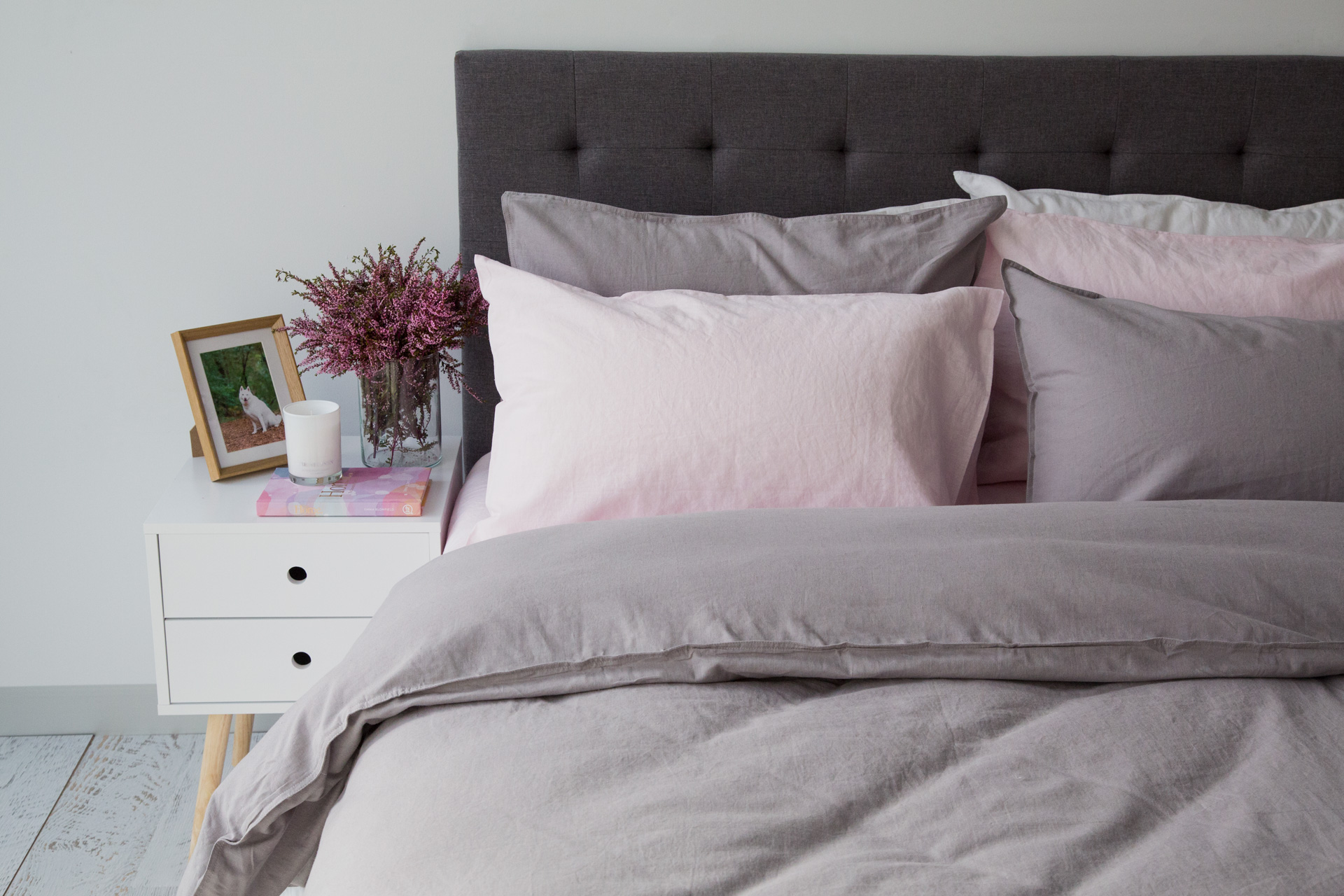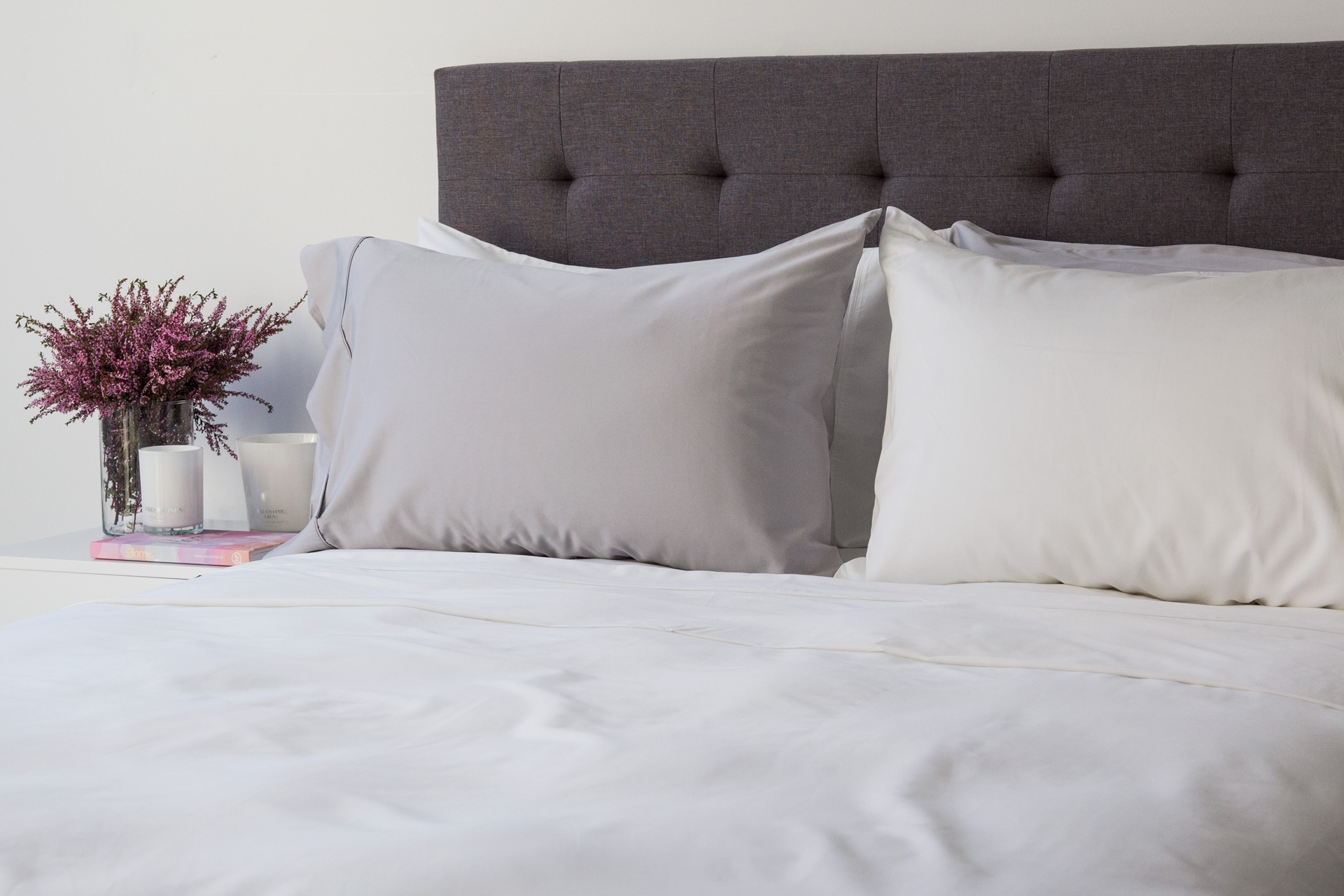How To Get A Good Night's Sleep
28th Sep 2021
Thanks to a study published by the Mayo Clinic earlier this month, we now know that sleeping with a dog in the bedroom - but not on the bed - can help you get a better night’s shut eye. If there’s no special Fido in your life or if you have a strict outdoor policy for dogs, don’t worry: there are plenty of other ways to increase your chances of a better night’s sleep.
Why is a good night's sleep important?
The best way to answer this question is to look at what happens when you don’t get one. After a restless night, your hormones, brain function and exercise performance are all negatively impacted. If poor sleep is a regular occurrence, you’re also more likely to gain weight and develop chronic disease. In other words, if you thought a lack of sleep just made you cranky, it’s time to reassess. Try some of these tips and tricks to help set you up for regular restful nights.
Increase bright light exposure during the day and decrease blue light exposure in the evening
Your internal body clock - known scientifically as your circadian rhythm - takes its cues from the surrounding light, enlisting certain hormones and neurotransmitters to keep you awake when there’s lots of it and make you drowsy in the hours it’s absent. Research shows that as little as two hours of exposure to bright light (ideally sunlight) during the day can increase the amount and quality of your sleep, so take your lunch outside, angle for a desk at the window or read the morning paper on the balcony. If sunlight is hard to come by where you are, a bright artificial light can have the same effect.
While it’s beneficial to seek light during the day, it’s counterproductive to be exposed to too much of it at night as your body will continue producing the hormones that keep you alert and hold back on those that help you relax. Before you run around and switch off all the lights in your home, keep in mind that blue light - the kind emitted from electronic devices - is the worst offender. So turn your TV off an hour or two before heading to bed and set up night shift on your phone (the instructions here show you how ), rediscovering the joy of reading, conversation or Sudoku.
Send yourself to bed at a similar time each night
Most of us tend to wake up around the same time every morning regardless of when we went to bed the night before. Part of this is necessity, thanks to little things like gainful employment, but part of it is down to the fact your body likes consistency. As such, a standard wake time works best if you also have a standard bedtime, allowing your body to get into a groove and ensuring you get enough sleep before the alarm goes off in the morning. Try setting a reminder on your phone when it’s time to go to bed to help get you into the habit. Before long, you’ll be enjoying better quality sleep and waking up just before your alarm, which is always a much nicer way to start the day.
Make your bed as comfortable as possible
We’ve all had a bad night’s sleep on a lumpy mattress, in a hot room or on sheets that rustle loudly every time you move a millimetre. If any of these things apply to your bedroom, it’s time to make a change. As a guide you should be changing your mattress every five years and your pillows every 18 months to three years, depending on their fabrication. If it’s time for an upgrade, look into memory foam options for both - research shows the innovative construction provides optimal support and temperature control, resulting in less interrupted sleep. If you need to upgrade your sheets, look to buy sets made from good quality natural fibres like linen or bamboo. They’re softer and regulate temperature much better than their polyester counterparts.
Time your exercise and night time meal right
It’s been shown time and time again that people who exercise regularly during the day sleep better at night, both nodding off more quickly and spending more time in the deep, restorative stages of sleep. However, it’s important to note that these benefits lessen if you exercise within a few hours of going to bed as your metabolism, body temperature and cortisol levels remain high and make sleep rather elusive.
Similarly, eating just before bed isn't a great idea, especially if it's a rich, heavy meal. While you might feel tired immediately after eating, your body will need to digest the food - something it prefers to do while you’re awake thanks to chemical and hormonal requirements. Have dinner three to four hours before lights out for the best results.
Clear your mind
Busy minds can keep even the tiredest bodies awake at night so if you’re someone who turns thoughts over and over when you first lie down, try getting into the habit of switching your brain into relax mode earlier in the night. Try taking a warm bath, getting your partner to give you a massage, going through some relaxation exercises or listening to calming music. If you’re up for it, test out the world's most relaxing song just before bed. Its creators, Marconi Union, teamed up with sound therapists in the creative phase, focusing on finding a melody that lowers blood pressure, stress levels and heart rate. They were so successful the song is actually dangerous to listen to while driving or operating heavy machinery; something which means it’s perfect for those pre-bedtime rituals of teeth brushing, pillow fluffing and nestling in between the sheets.

 Bedroom Clearance
Bedroom Clearance







 Australian Dollar
Australian Dollar
 New Zealand Dollars
New Zealand Dollars
 US Dollars
US Dollars


